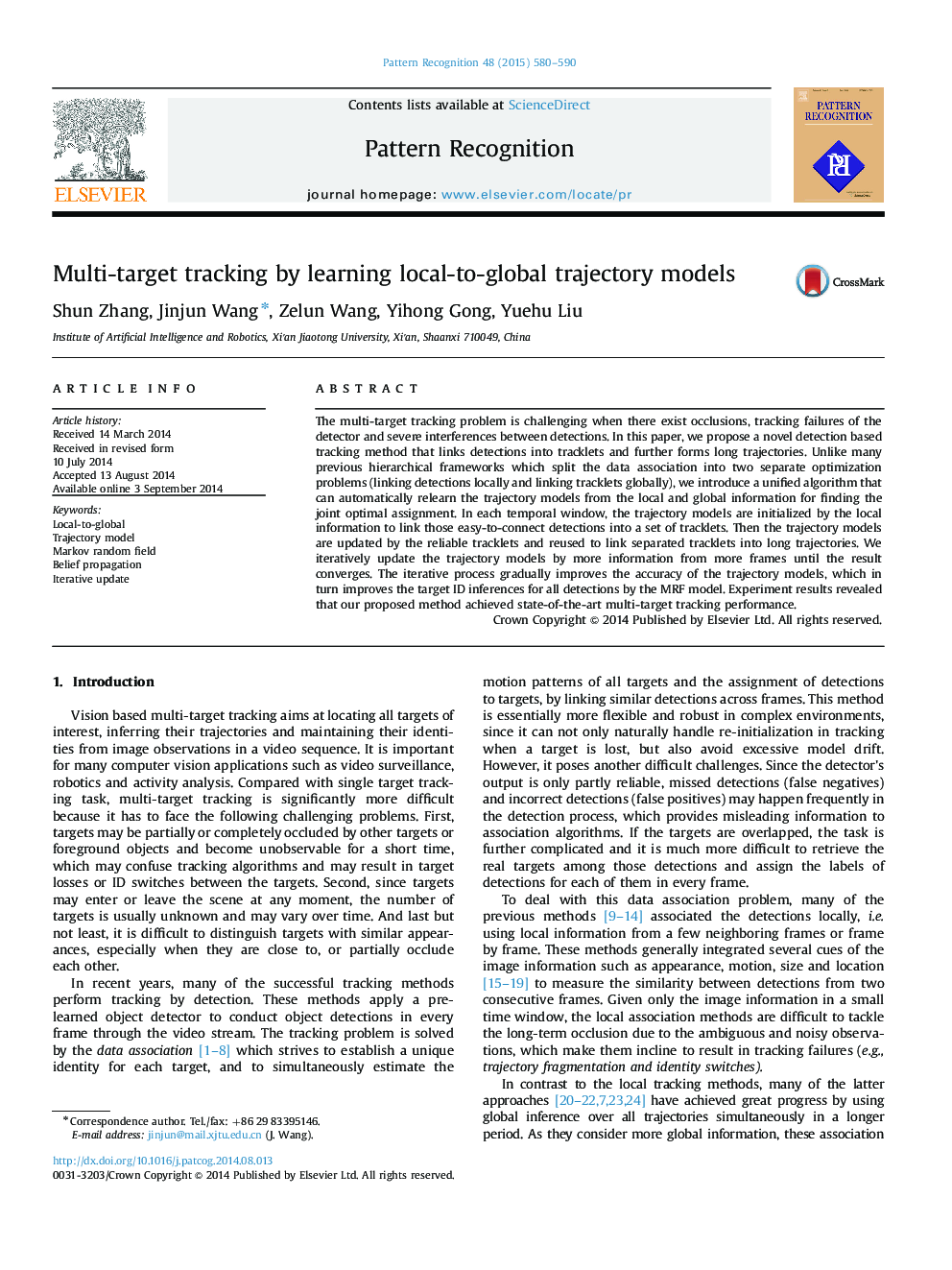| Article ID | Journal | Published Year | Pages | File Type |
|---|---|---|---|---|
| 530016 | Pattern Recognition | 2015 | 11 Pages |
•A unified framework to online learn local-to-global trajectory models is proposed.•The iterative algorithm can alternately update the trajectory models.•We solve inferences of target IDs for all the detections by using the MRF model.•Our method has low complexity compared with most state-of-the-art methods.
The multi-target tracking problem is challenging when there exist occlusions, tracking failures of the detector and severe interferences between detections. In this paper, we propose a novel detection based tracking method that links detections into tracklets and further forms long trajectories. Unlike many previous hierarchical frameworks which split the data association into two separate optimization problems (linking detections locally and linking tracklets globally), we introduce a unified algorithm that can automatically relearn the trajectory models from the local and global information for finding the joint optimal assignment. In each temporal window, the trajectory models are initialized by the local information to link those easy-to-connect detections into a set of tracklets. Then the trajectory models are updated by the reliable tracklets and reused to link separated tracklets into long trajectories. We iteratively update the trajectory models by more information from more frames until the result converges. The iterative process gradually improves the accuracy of the trajectory models, which in turn improves the target ID inferences for all detections by the MRF model. Experiment results revealed that our proposed method achieved state-of-the-art multi-target tracking performance.
